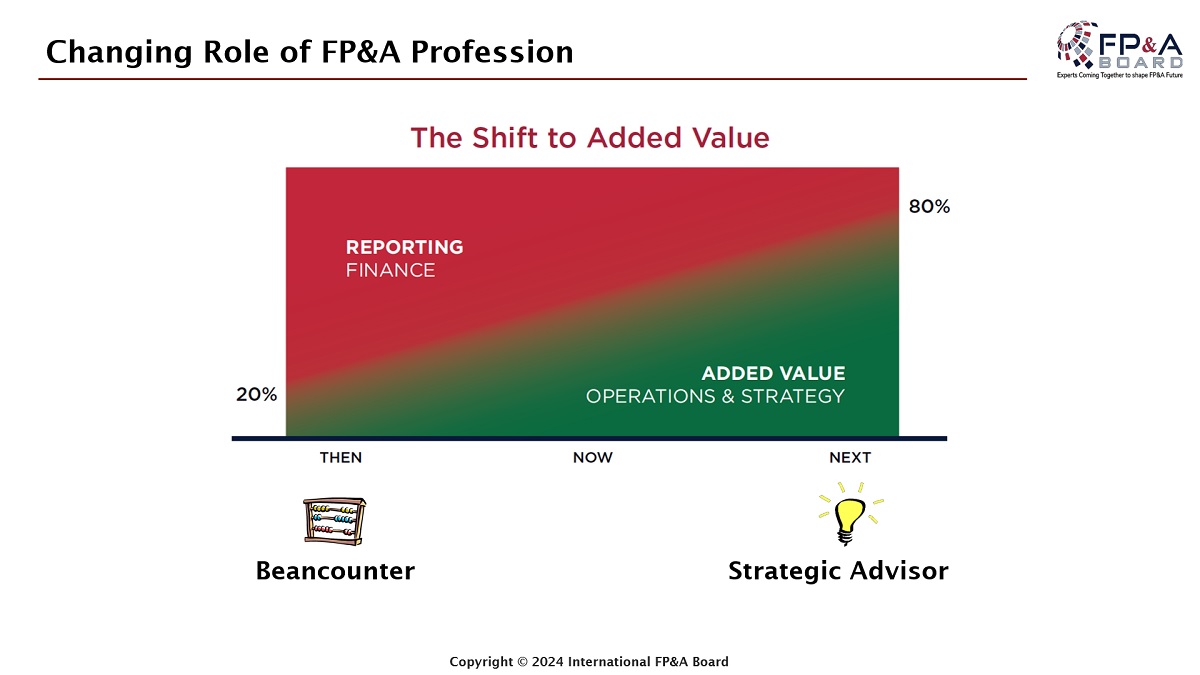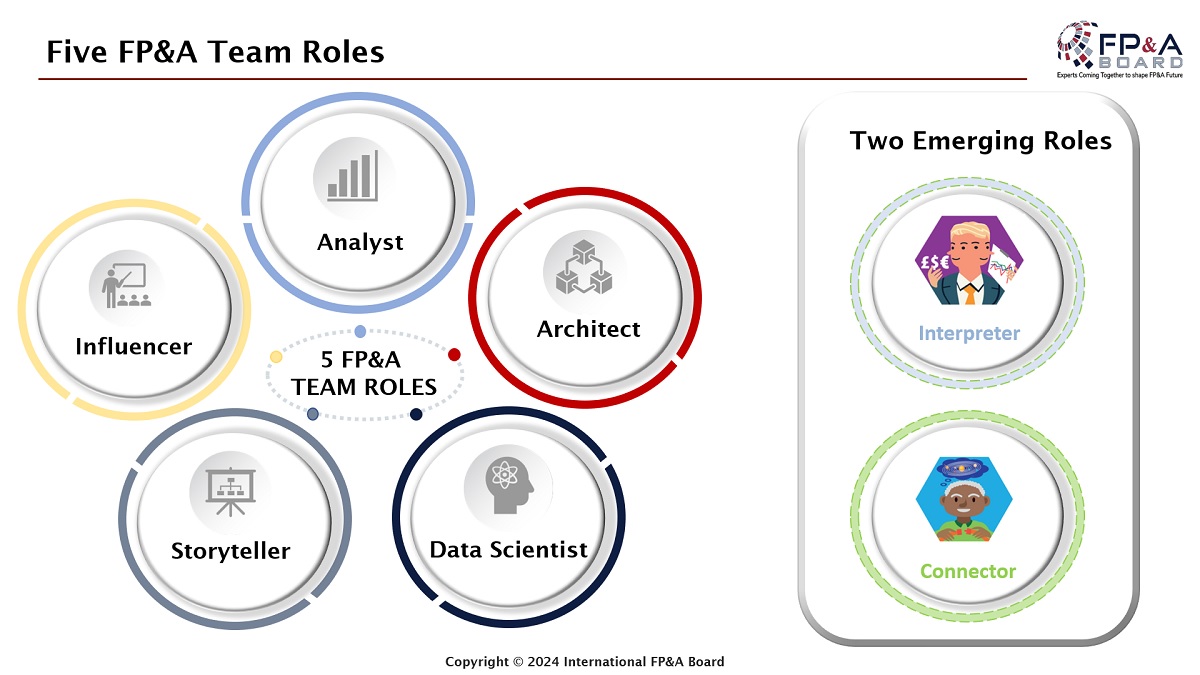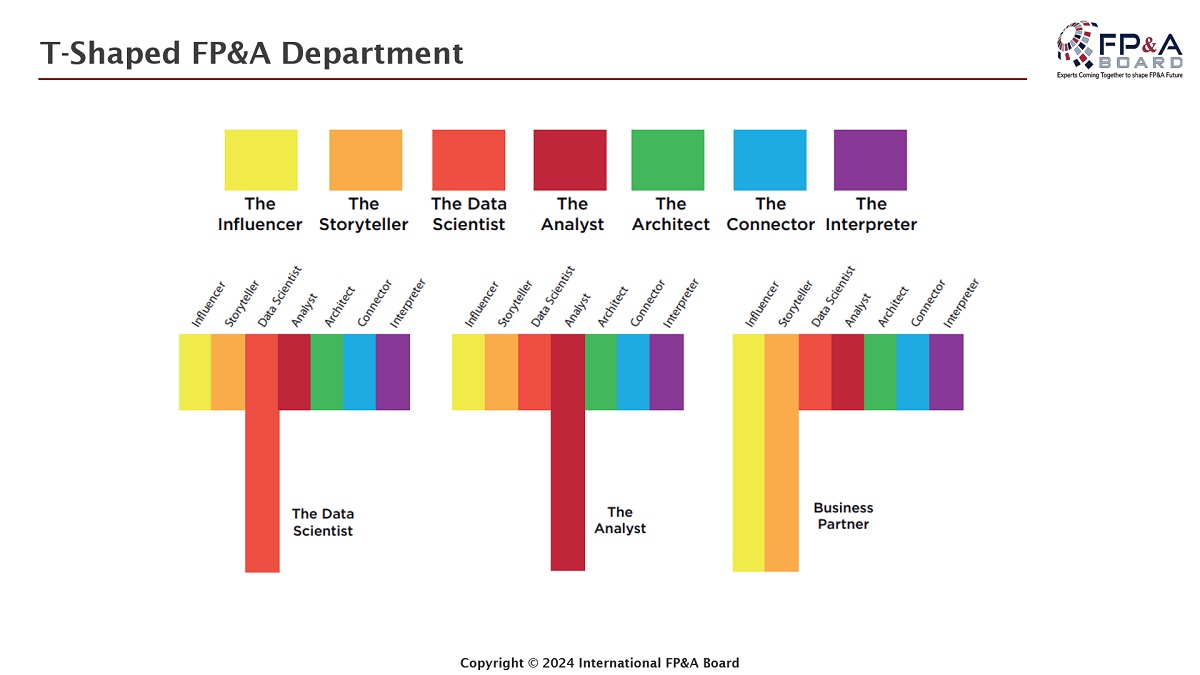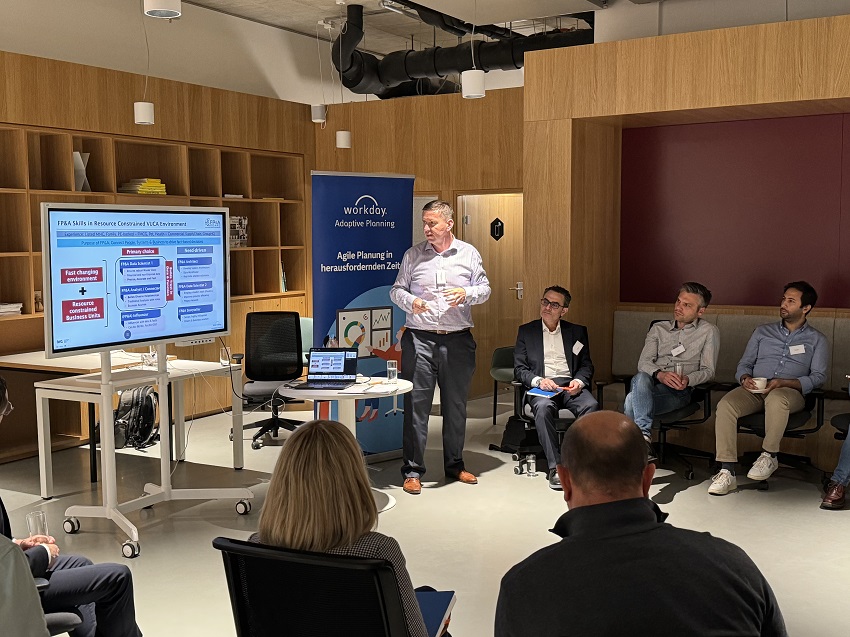The world of Financial Planning and Analysis (FP&A) is undergoing a significant transformation. Gone are the days of siloed teams focused solely on reporting. Today's FP&A professionals need to be strategic partners, leveraging data, storytelling, and strong business acumen to guide organisational success. Building a well-structured and skilled FP&A team is paramount for achieving this.
This article explores key takeaways from the recent Munich FP&A Board, held on May 14th, 2024, in Spaces Werksviertel and chaired by Larysa Melnychuk, Managing Director at International FP&A Board.
The meeting was sponsored by Workday in partnership with International Workplace Group.

Figure 1: Munich FP&A Board №3 Participants, May 2024
The FP&A Board discussion, attended by 29 senior FP&A practitioners from different companies, including Amazon, Nokia, Convatec, Beckman Coulter, Essity, Amway, Volvo, EY, and many others, provided valuable insights into the five core FP&A roles, essential skills, and emerging trends shaping modern FP&A teams.
The Evolving FP&A Landscape: Core Roles and New Skill Sets
Traditionally, FP&A teams functioned in a more reactive manner, focusing primarily on historical data analysis and routine financial reporting.
Here's a breakdown of how the FP&A landscape has evolved:
Historical FP&A Roles | Modern FP&A Roles |
Data Processors and Reporters | Data Analysts and Storytellers |
Focused on Past Performance | Focused on Future Performance |
Limited Skill Set (Accounting, Finance) | Multi-disciplinary Skill Set (technical, business, digital, soft skills) |
Limited Technology Adoption | Leverage Advanced Technologies |
Reactive and Siloed | Proactive and Collaborative (Business Partnering) |
Minimal Influence on Decision-Making | Strategic Influence and Decision Support |
The evolution of FP&A roles reflects a fundamental shift from data processing and historical reporting to a strategic and future-oriented function. Modern FP&A teams leverage data analytics, storytelling, and collaboration to become key partners in driving organisational success.

Figure 2
It means that the following roles form the foundation of a strong FP&A team:

Figure 3
- Analyst: This traditional role remains crucial. They are responsible for core tasks like analysis and reporting, developing models, and overseeing planning and forecasting processes.
- Storyteller: Storytellers translate complex data into compelling narratives, allowing stakeholders to understand the financial implications and make informed decisions.
- Influencer: Influencers champion the FP&A function within the business, building trust and ensuring their insights shape strategic decision-making.
- Architect: The Architect bridges the gap between finance and IT. They design and implement data warehouse systems and architecture, ensuring smooth data flow and enabling advanced analytics.
- Data Scientist: Data Scientists leverage their expertise in data analysis and Machine Learning to extract valuable insights from vast datasets. They play a vital role in supporting forecasting, risk management, and Scenario Planning.
- Interpreter: Interpreters tailor complex FP&A data and insights for specific audiences, ensuring clear communication across the company.
- Connector: This role fosters collaboration across different departments, ensuring seamless information exchange and a holistic view of the organisation's financial health.
The Skills Imperative: A Multi-Disciplinary Approach
The attendees emphasised that FP&A professionals should possess a diverse skill set encompassing technical, business, digital, and soft skills.
- Technical Skills: Proficiency in core financial modelling techniques, data analysis tools, and understanding of financial accounting principles remain essential.
- Business Skills: A deep understanding of the business, industry knowledge, and strong analytical skills are crucial for translating financial data into actionable insights.
- Digital Skills: Expertise in data analytics, data visualisation tools, and familiarity with AI/ML are increasingly important for advanced FP&A functions.
- Soft Skills: Collaboration, communication (written and verbal), emotional intelligence, and leadership are critical for effective teamwork, building trust with stakeholders and influencing decision-making.
"Unicorn" FP&A professionals, proficient in all five categories, are rare. That’s why the majority of FP&A teams consist of professionals with complementary skill sets. This "T-shaped" approach fosters a balance between generalist capabilities and specialist expertise.

Figure 4
Shaping the Future: Key Trends in FP&A
The workshop also identified several key trends that are shaping the future of FP&A:
- Scenario Planning: The ability to model different scenarios and assess their potential outcomes is crucial for navigating today's volatile business environment.
- Integrated FP&A (xP&A): Integrating FP&A with other functions, such as sales, operations, and marketing, fosters a unified view of the organisation's performance and facilitates strategic alignment.
- Advanced Analytics and AI/ML: Leveraging data analytics tools and Artificial Intelligence allows for more sophisticated forecasting, risk management, and Scenario Planning.
- Importance of Storytelling with Data: Effective communication of complex data through compelling narratives is key for influencing decision-making across the business.
- T-shaped Skills (Generalists and Specialists): Building teams with a blend of generalist and specialist skills ensures a well-rounded FP&A function.
- ESG Integration: Environmental, Social, and Governance (ESG) factors are becoming increasingly important. FP&A teams need to integrate ESG requirements into their planning and analysis.
- Business Partnering: The transition from data providers to strategic Business Partners is a critical shift. FP&A teams need to actively engage with business leaders and provide insights that directly impact decision-making.
Building a World-Class Team: Leadership and Development
Richard Karadi, Group Head of FP&A, Next Clinics International, shared his experience on leadership as a crucial requirement for building a successful FP&A team.

Figure 5: Richard Karadi, Munich FP&A Board №3, May 2024
Effective leaders possess:
- Strategic Vision: Leaders need a clear vision for the FP&A team's role within the organisation and a roadmap for achieving its goals. This includes aligning the team's skill set with the company's strategic objectives.
- Building Trust in Data and among Stakeholders: Credibility is crucial. Leaders ensure the accuracy and reliability of data analytics and foster trust with stakeholders by presenting insights transparently.
- Investment in Team Development: Continuous learning and development are essential for FP&A professionals to keep pace with the evolving landscape. Businesses should provide opportunities for training, mentorship, and skill development to nurture future FP&A leaders.
- Fostering a Collaborative Culture: A strong team thrives in collaboration. Leaders should create an environment that will encourage open communication, knowledge sharing, and teamwork.
The following actions can help us attract, develop, and retain top FP&A talents:
- Utilise social media: Leverage social media platforms to connect with potential candidates and showcase the organisation's FP&A culture.
- Stay updated: Leaders should keep pace with industry trends and best practices. Encourage ongoing learning in your team.
- Invest in development: Provide opportunities for professional development through training programs, mentorship, and participation in industry events.
- Offer feedback: Regular constructive feedback helps individuals identify strengths and areas for improvement.
- Create a positive work environment: Foster a collaborative and supportive work environment where team members feel valued and appreciated.
Group Work: Key Takeaways

Figure 6: Group work, Munich FP&A Board №3, May 2024
On hearing Richard’s insights, the participants were asked to split into groups and suggest practical steps for building a modern FP&A team. We recollect some of the takeaways from each group.
Leadership
- Vision, plan and purpose
- Communication and influence
- Curiosity and creativity
- Diversity
- Development (career path and skills)
- Change Management
- Clear role definition
- How to sell a story to an organisation
Business Partnering

Figure 7: Group work, Munich FP&A Board №3, May 2024
- Strategic alignment
- Trust from business units
- Business understanding
- Recruiting
- Leaders should have a complete picture
- Short-term rotation
Functional Skills
- Define the required skills depending on a company’s size and business model
- Identify skill gaps
- All five roles should be developed equally
Conclusion: The Future of FP&A Teams
Building a world-class team requires a focus on core roles, a diverse skill set, and continuous development. By understanding the key trends, fostering strong leadership, and investing in talent development, organisations can build FP&A teams that are strategic partners, driving informed decision-making and propelling their businesses to success.
We look forward to the next insightful FP&A Board in Munich.









